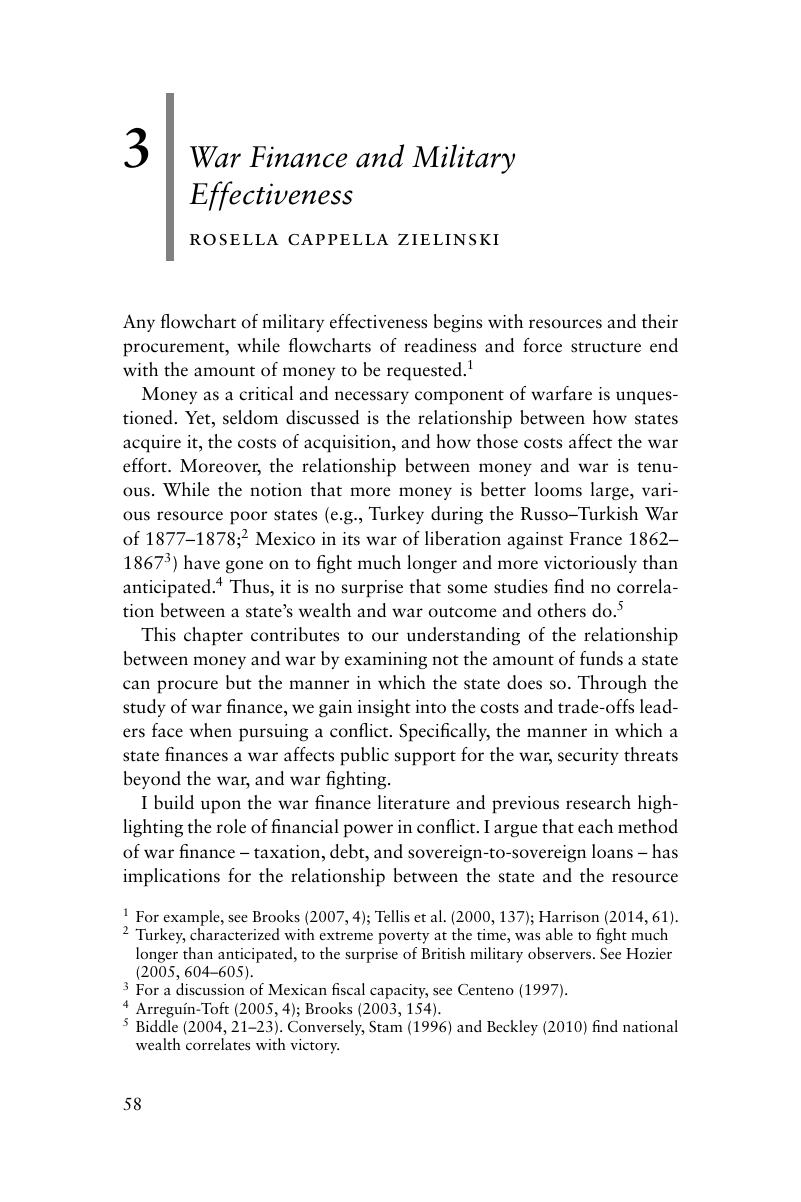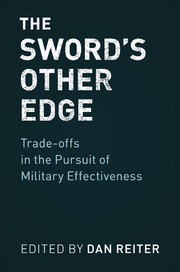Book contents
- The Sword's Other Edge
- The Sword's Other Edge
- Copyright page
- Contents
- Figures
- Tables
- Contributors
- Acknowledgments
- 1 Confronting Trade-offs in the Pursuit of Military Effectiveness
- 2 Force Protection and Its Trade-offs
- 3 War Finance and Military Effectiveness
- 4 Forced to Fight
- 5 Sources of Military Effectiveness in Counterinsurgency
- 6 Military Robotics, Autonomous Systems, and the Future of Military Effectiveness
- 7 Too Much of a Good Thing?
- 8 Making Trade-offs without Assessing Probabilities
- 9 Conclusion
- Index
- References
3 - War Finance and Military Effectiveness
Published online by Cambridge University Press: 03 November 2017
- The Sword's Other Edge
- The Sword's Other Edge
- Copyright page
- Contents
- Figures
- Tables
- Contributors
- Acknowledgments
- 1 Confronting Trade-offs in the Pursuit of Military Effectiveness
- 2 Force Protection and Its Trade-offs
- 3 War Finance and Military Effectiveness
- 4 Forced to Fight
- 5 Sources of Military Effectiveness in Counterinsurgency
- 6 Military Robotics, Autonomous Systems, and the Future of Military Effectiveness
- 7 Too Much of a Good Thing?
- 8 Making Trade-offs without Assessing Probabilities
- 9 Conclusion
- Index
- References
Summary

- Type
- Chapter
- Information
- The Sword's Other EdgeTrade-offs in the Pursuit of Military Effectiveness, pp. 58 - 87Publisher: Cambridge University PressPrint publication year: 2017
References
- 1
- Cited by



